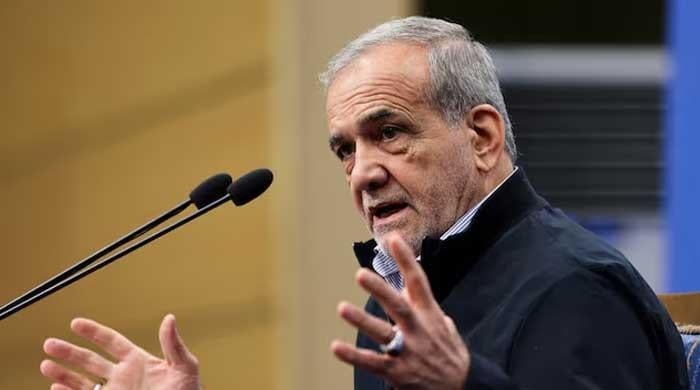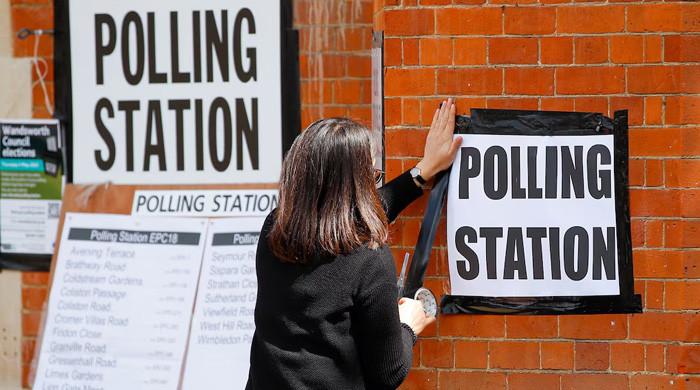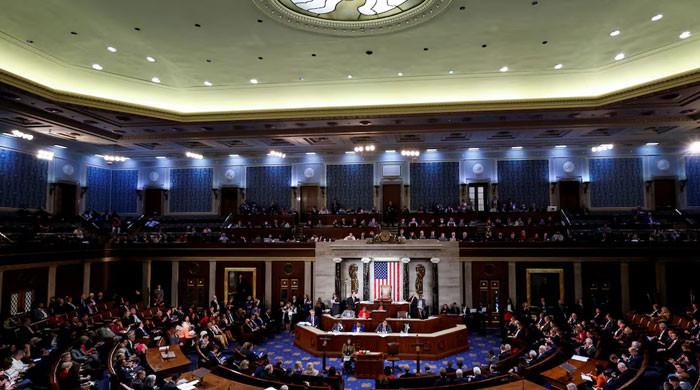PM Imran condemns passage of India’s ‘anti-Muslim’ citizenship bill
US committee proposes sanctioning top Indian officials over controversial bill
December 10, 2019
Prime Minister Imran Khan has strongly condemned controversial legislation passed by the Indian Parliament which will grant citizenship to religious minorities from neighbouring countries, but not Muslims.
“We strongly condemn Indian Lok Sabha citizenship legislation which violates all norms of international human rights law and bilateral agreements with Pakistan,” PM Imran tweeted Tuesday morning.
The premier described the move as “part of the RSS Hindu Rashtra design of expansionism propagated by the fascist Modi government.”.
The Citizenship (Amendment) Bill provides that Hindus, Sikhs, Buddhists, Jains, Parsis, and Christians fleeing persecution in Muslim-majority Afghanistan, Bangladesh and Pakistan can be granted citizenship of India. There are no similar provisions for Muslim refugees.
The bill sailed through the lower house with 311 votes in favour and 80 against shortly after midnight on Monday.
The Foreign Office in a statement called the move “a complete violation of the Universal Declaration of Human Rights and other international covenants on elimination of all forms of discrimination based on religion or belief”.
"The Lok Sabha legislation is also in complete contravention of various bilateral agreements between Pakistan and India, particularly the one concerning security and rights of minorities in the respective countries,” the statement read.
Read also: India passes religiously discriminatory citizenship bill amid global outcry
It added, "The latest legislation is another major step towards the realisation of the concept of ‘Hindu Rashtra’, idealised and relentlessly pursued by the right-wing Hindu leaders for several decades. It is driven by a toxic mix of an extremist ‘Hindutva’ ideology and hegemonic ambitions in the region.”
"We condemn the legislation as regressive and discriminatory, which is in violation of all relevant international conventions and norms, and a glaring attempt by India to interfere in the neighboring countries with malafide intent," the statement added.
US proposes sanctioning top Indian officials
The United States on Tuesday also expressed concerns over the passage of the discriminatory bill.
The US Commission on International Religious Freedom (USCIRF) said it will propose sanctions against senior members of the Indian political leadership if the bill is enacted as law.
The USCIRF in its statement noted that the bill specifically excluded Muslims, setting a legal criterion for citizenship based on religion.
"The Citizenship (Amendment) Bill is a dangerous turn in the wrong direction; it runs counter to India’s rich history of secular pluralism," the statement said.
The commission also condemned the bill as a ‘violation’ of the Indian constitution, relating it to recent efforts to introduce the National Register of Citizens (NRC) in Assam and nationwide. The NRC, like the citizenship bill, is widely believed to be the brain-child of the Indian Home Minister, Amit Shah.
"USCIRF fears that the Indian government is creating a religious test for Indian citizenship that will strip citizenship from millions of Muslims," the USCIRF warned.
Read also: US considering sanctions on top Indian officials, including Home Minister Amit Shah
In a statement made separately early Tuesday, the US House Foreign Affairs Committee also condemned the passage of the contentious bill through the Indian lower house, saying that the so-called ‘religious test’ for citizenship undermined basic democratic tenets shared by the US and India.
The ruling BJP in India had included the passage of the CAB as part of its manifesto released ahead of elections in May 2019.
Protests erupt as India pushes for citizenship bill
The citizenship bill also sparked protests in India’s northeastern states, where residents are unhappy about an influx of Hindus from neighbouring Bangladesh.
In Guwahati in Assam state, protesters set fire to tyres, while tribal groups staged protests in Tripura. Student groups called for dawn-to-dusk shutdown in four districts of the state, while shops, businesses, educational and financial institutions remained shut and public transport stayed off the roads.
“We will fight and oppose the bill till the last drop of our blood,” All Assam Students’ Union adviser Samujjal Bhattacharya told Reuters, underlining the region’s resistance against migrants amid fears that tens of thousands of settlers from neighbouring Bangladesh would gain citizenship.
In Modi’s home state of Gujarat and the city of Kolkata, hundreds of people staged protests and marched against the proposed law.











